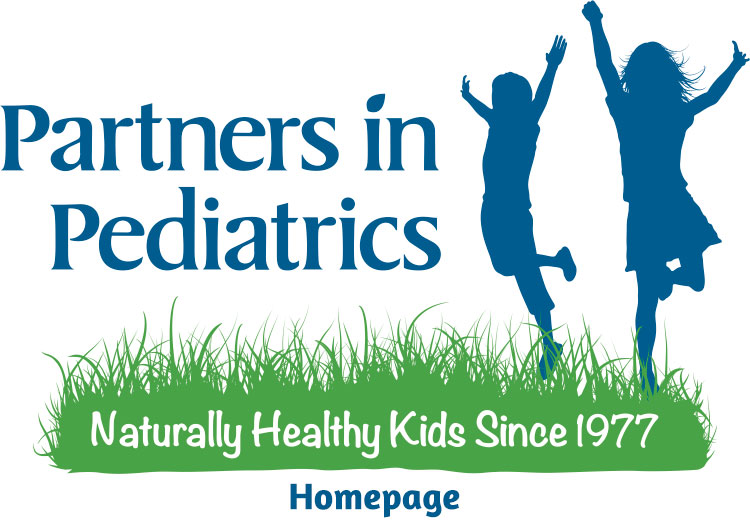Childhood obesity has been on the rise in the United States for the past several years. Although there are a variety of reasons why, the most easily changed factors are poor diet and lack of exercise.
For children and teens, being overweight or obese is determined by their pediatrician with an assessment of body mass index (BMI). The BMI uses height, weight, sex, and age to determine where a person falls within a growth percentile. There are several other factors that can impact a child’s overall health — including genetics and lifestyle — so it’s important to speak with your doctor for a holistic look at your child’s wellbeing.
After calculating BMI and plotting the result on standard BMI charts, doctors use four categories to describe weight in kids ages 2 to 19:
- Underweight: BMI below the 5th percentile
- Normal weight: BMI at the 5th and less than the 85th percentile
- Overweight: BMI at the 85th and below 95th percentiles
- Obese: BMI at or above 95th percentile
For kids younger than 2 years old, doctors use weight-for-length charts instead of BMI to determine how a baby’s weight compares with their length.
It’s important to remember that BMI is not a perfect measure of body fat and can be misleading in some cases. For example, a muscular person may have a high BMI without being overweight (extra muscle adds to body weight — but not fatness). Also, BMI might be hard to interpret during puberty when kids have periods of fast growth. Remember, BMI is usually a good indicator of body fat, but it’s not a direct measurement.
Of course, it’s important for parents to know whether their children are indeed at a healthy weight. To do this, check with your integrative pediatrician to ensure routine exams and health coverage are assessing healthy height and weight percentiles by age and discussing any trends during annual checkups.
If it’s been determined by your doctor that your child is in need of some healthy lifestyle changes to manage their weight or to prevent obesity, we’ve put together a helpful guide to ease the transition.
Healthy Eating & Active Lifestyles Begin at Home
It’s no surprise, families are one of the most important and lasting influences on the choices children and young adults make throughout their lives. So, when it comes to preventing excess weight gain and obesity, parents and guardians have huge potential to lay a solid foundation for future health and wellness.
Between social media, an abundance of fast food choices, and increasing screen time, families are exposed more and more to influences that promote unhealthy eating and sedentary lifestyles. But, with the right support, parents can provide children with the tools and experience they need to make healthy choices. Plus, with a combination of integrative medicine and holistic treatments, childhood obesity can be prevented or managed with the help of your family pediatrician.
Change Starts in the Kitchen
One of the best places to start building a strong foundation for health and wellness is in the kitchen. Parents can do this by creating a healthy food environment for themselves and their little ones. Tips for creating a healthy kitchen include:
- Stocking the fridge and pantry with vegetables, fruits, whole grains, and other nutritious foods
- Limiting low-quality or overly processed foods and drinks, like sugary soda and sweets
- Modeling healthy eating for children by choosing a healthy diet
- Eating dinner together as a family
- Eating a protein rich breakfast daily
- Encouraging children to try a variety of new healthy foods — such as vegetables. Remember: it can take multiple tries for kids to accept a new food.
- Nurturing your kiddo’s interest in food shopping and cooking
- Engaging in family hobbies such as gardening
- Teaching children to pay attention to hunger cues and feelings of fullness
Living an Active Lifestyle
Creating a home where being active daily is the norm is a great way to instill long lasting healthy habits with your little ones. Children need to get at least 60 minutes of physical activity each day. Parents can help kids achieve that goal in many ways.
There is no lack of outdoor fun in the Denver metro area. Activities such as walking with your kids to school, outings with family and friends, or playing outside are simple ways to add movement on a daily basis. In addition to activity, monitoring screen time and maintaining consistent sleep routines are also important aspects of physical health.
Additional tips to establish good habits as an active family:
- Choose activities that family members of all ages and abilities can enjoy
- Model active lifestyles for your children by becoming more physically active and by limiting sedentary activities — such as television watching
- Walk or bike to school with children
- Encourage children to play outside
- Limit children’s TV viewing and screen time (computers, DVDs, video games)
- Turn off the television during mealtimes
- Ensure children get adequate sleep and establish healthy sleep habits early on
Be a Good Role Model
Kids pick up more habits than you may realize on a daily basis (and not just the occasional curse word after you stub your toe). Above all else, parents and guardians should try to be good role models for their kids. The basics can go a long way. Eating healthy, staying active, minimizing screen time, and living healthy lifestyles are essential life skills children internalize as they grow.
Surrounding your family with health conscious adult role models, such as teachers, coaches, and family physicians, can help reinforce the healthy habits modeled at home to create a holistic approach to overall health. The benefits begin almost immediately and can spread to future generations.
We’re Here to Help
Children who suffer from obesity can require medical and psychosocial needs that are different from an adult patient. If treatment is necessary, it must be tailored to each child’s unique cognitive, emotional, and physical development and the environment in which they live.
Children require the support of parents, siblings, extended family, and extended social networks to be successful at managing their weight. All families hold a wide range of knowledge, attitudes, and beliefs about what constitutes a healthy lifestyle. We believe it’s critical to treat each family with respect and to tailor approaches to the unique needs the child and family. Children should NOT be placed on a weight reduction diet without the consultation of a health care provider.
At Partners in Pediatrics, we are holistic pediatricians committed to educating the mile high city with integrative and functional wellness / health care topics to help you and your kids maintain optimal health. We are dedicated to providing your family with exceptional care and combining conventional medicine and complementary and alternative remedies. And, no pediatric care plan would be complete tips on how to live a healthy lifestyle.
As always, please get in touch with us with any questions about your child’s health, wellness, or questions related to childhood obesity. If you’re interested in more comprehensive advice, please contact us and speak with our team serving patients in downtown Denver, Littleton, Cherry Creek, City Park, and the surrounding areas of Colorado.







Leave a Reply